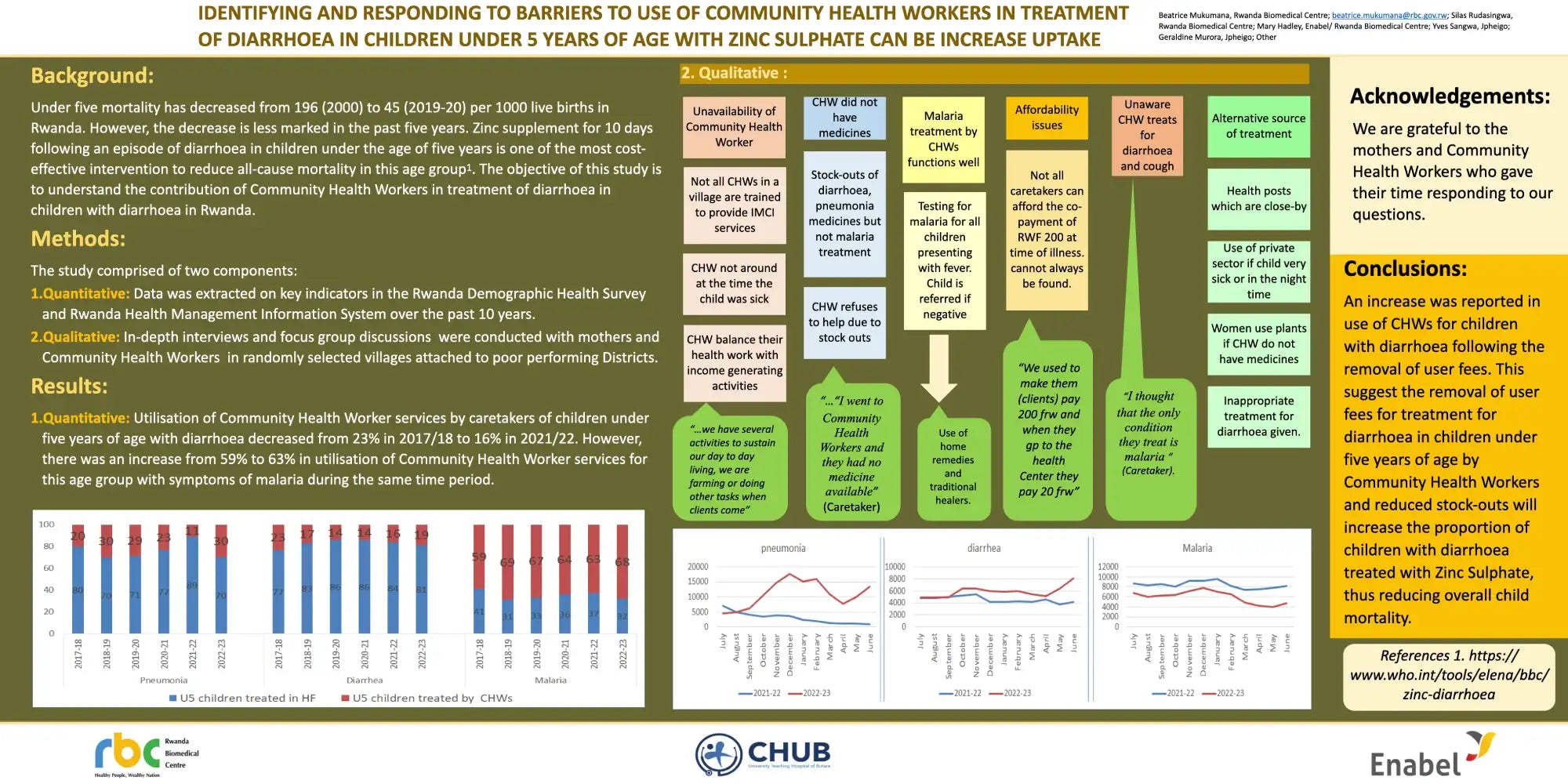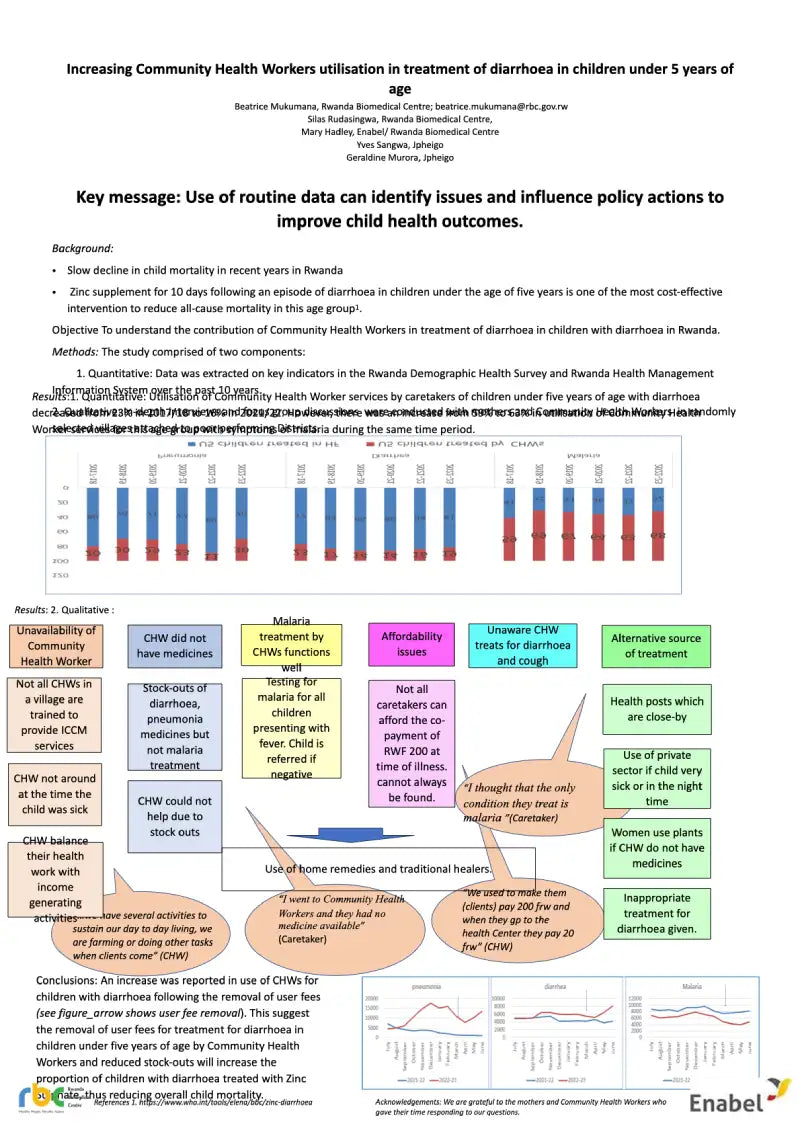Child Health
The impact of a role of CHWs in treatment with Zinc Sulphate in children under 5 years old following an episode of diarrhoea in Rwanda: Analysis of routine data.
Under-five mortality has decreased from 196 (2000) to 45 (2019-20) per 1000 live births in Rwanda, however, the decrease is less marked in the past five years. Zinc supplement for 10 days following an episode of diarrhoea in under five children is the most cost-effective intervention to reduce all-cause mortality in this age group. In Rwanda all policies and systems are set up to allow every child with diarrhoea to receive Zinc sulphate. We tried to understand whether these policies and systems were fully functioning by analysing routine and survey data and talking to caretakers of children under five years old and the Community Health Workers.
We found that utilisation of Community Health Workers for children with diarrhoea decreased from 23% in 2017/18 to 16% in 2021/22. However, there was an increase from 59% to 63% in utilisation of Community Health Workers for diagnosis and treatment of children with malaria. Reasons for the reluctance to use Community Health Workers were related to the cost of the service, stockouts and a perception that only malaria treatment was provided by these village-level volunteers.
As a result of the study the Ministry of Health removed user fees for treatment with Zinc Sulphate for diarrhoea in children under five years of age by Community Health Workers. There was a corresponding increase in uptake in this service following removal of user fees. The next steps are to pay attention to the supply chain of Zinc Sulphate and widely disseminate information of the benefits of Zinc sulphate to children following a diarrhoea episode and the availability of this service at village level.


